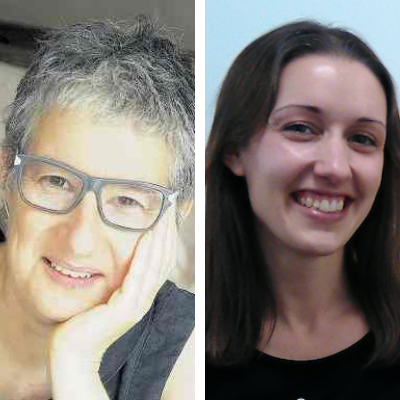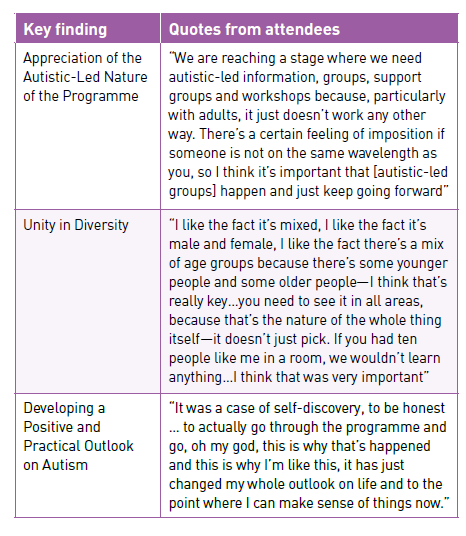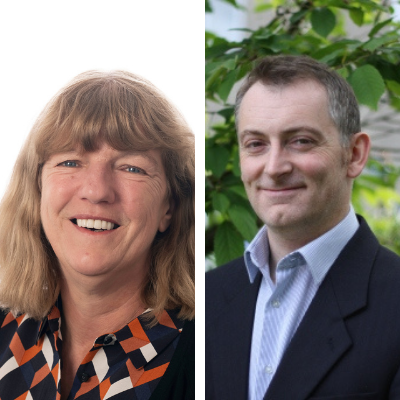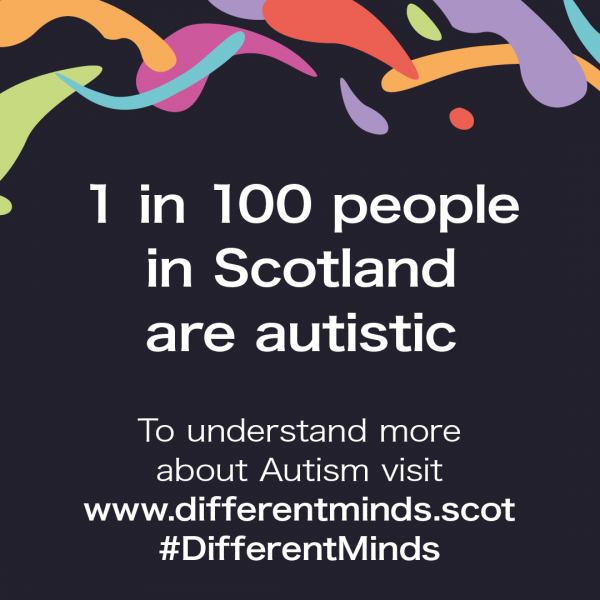Exploring Being Autistic: An Autistic-Led Programme for Supporting Newly Identified or Diagnosed Autistic Adults
Caroline Hearst, Autism Educator and Laura Crane, Deputy Director of CRAE
“Where to from here?” That’s the question often asked when adults discover that they’re autistic. With growing awareness of autism, and a broadening of the autism diagnostic criteria, more people are receiving an autism diagnosis in adulthood than ever before. This can bring mixed feelings. After years of not ‘fitting in’, many autistic adults report relief (and even elation) in finally having an explanation for their feelings of difference (i). For others, this information may come as a complete surprise: perhaps stemming from an assessment for another condition (e.g. mental health problems) or following their children receiving an autism diagnosis (ii). In either case, identification or diagnosis can be an important gateway to supports and services (ii). Appropriate support can be a lifeline for autistic people, as the diagnostic process can be extremely challenging; for example, raising personal and emotional experiences from the past, but not providing the time or space for these to be worked through(ii). Many autistic adults are dissatisfied with the help and support received post-diagnosis, with many receiving none at all (ii),(iii). Post-diagnostic support for autistic adults tends to be provided by non-autistic professionals. This is often experienced as a series of lessons on what is wrong with the autistic person with instructions as to how to change to appear more “normal”. There is growing recognition that this approach may be both counterproductive and harmful (iv). There is also evidence suggesting there are benefits of peer-support for autistic people (v). Advantages of peer support over professional support include greater empathy (given the shared lived experience of autism), gaining hope from seeing peers with the same diagnosis successfully navigating a (largely) neurotypical world, and a greater understanding of autism and how it may present in others. Whilst autistic-led peer support and education may not replace the need for some professional services, it can serve as a useful process for newly diagnosed/ identified autistic adults.
Exploring Being Autistic is a ten-week autistic-led programme that was designed by one of the authors (Caroline Hearst) for autistic adults recently identified or diagnosed as autistic. Within a peer group context, it aims to enable people diagnosed or self-identified as autistic to:
• Learn about autism and discover if/how it affects them personally;
• Process an emotional response to identification/ diagnosis;
• Consider the pros and cons of disclosing that they are autistic;
• Develop strategies to capitalise on the strengths and mitigate the challenges associated with autism;
• Socialise with peers.
An outline of the ten weekly sessions is presented in the table below. We carried out an initial evaluation of the programme with 16 autistic adults, who took part in one of two iterations of the programme. All 16 adults completed questionnaires before taking part in the programme, and then spoke with a researcher (Laura Crane) immediately after the programme and again six months later.
The results of our evaluation showed that the Exploring Being Autistic programme was well-received, with participants benefiting greatly, in many different ways. Specifically, they told us how they liked the autistic-led nature of the programme, developed a real sense of unity within the diverse group of attendees, and were able to use what they’d learnt to foster a positive, practical outlook on autism.
Quotes from attendees are presented in the table below. Whilst our participants were complimentary about the skills and expertise of the facilitator, it was encouraging that many of the positive aspects noted by attendees were in relation to both the structure and general principles of the programme (e.g. the positive nature of the syllabus, the diversity of group members); all of which could be taken forward by other (trained) autistic facilitators in the future.
Key recommendations for future programmes include:
• Ensuring that peer-support programmes are autistic led;
• Accepting a range of group members, including those that self-identify as autistic;
• Providing material on practical tips and solutions to challenges group members face;
• Enabling ongoing support after the programme finishes.
You can read more about Exploring Being Autistic by Laura Crane, Caroline Hearst, Maria Ashworth, Jade Davies, and Elisabeth L. Hill. ‘Supporting Newly Identified or Diagnosed Autistic Adults: An Initial Evaluation of an Autistic-Led Programme’ in Journal of Autism and Developmental Disorders, April 2020.
References
i Hearst, C. (Ed.). (2019). Being Autistic: Nine adults share their journeys from discovery to acceptance. Washington, DC: Independent Publishing Network.
ii Crane, L., Batty, R., Adeyinka, H., Goddard, L., Henry, L. A., & Hill, E. L. (2018). Autism diagnosis in the United Kingdom: Perspectives of autistic adults, parents and professionals. Journal of Autism and Developmental Disorders.,48(11), 3761–3772.
iii Jones, L., Goddard, L., Hill, E. L., Henry, L. A., & Crane, L. (2014). Experiences of receiving a diagnosis of autism spectrum disorder: A survey of adults in the United Kingdom. Journal of Autism and Developmental Disorders.,44(12), 3033–3044.
iv Bottema-Beutel, K., Park, H. & Kim, S.Y. (2018). Commentary on Social Skills Training Curricula for Individuals with ASD: Social Interaction, Authenticity, and Stigma. Journal of Autism and Developmental Disorders, 48, 953–964.
v NICE (2012). Autism spectrum disorder in adults: diagnosis and management.







